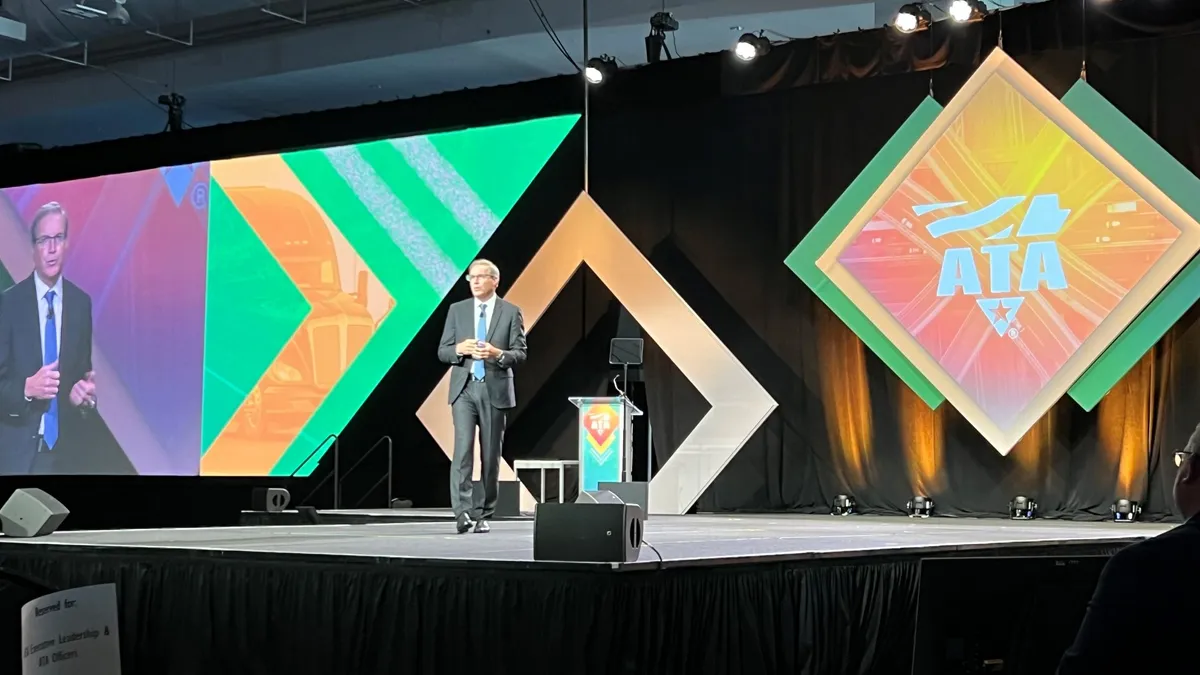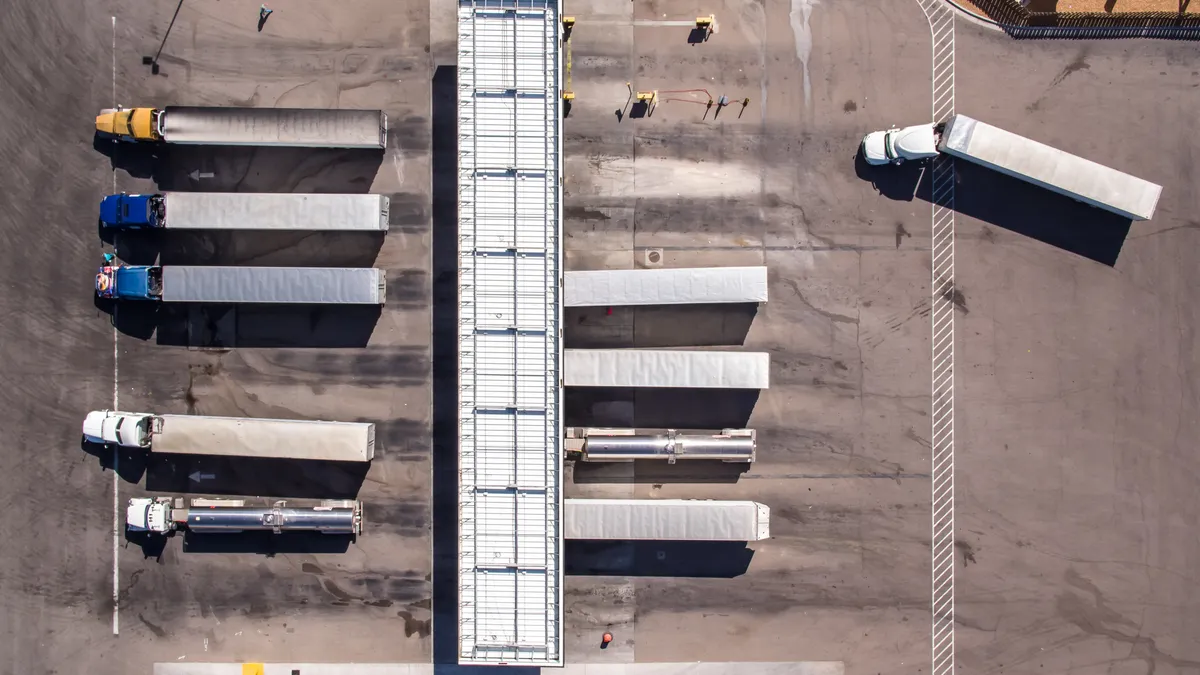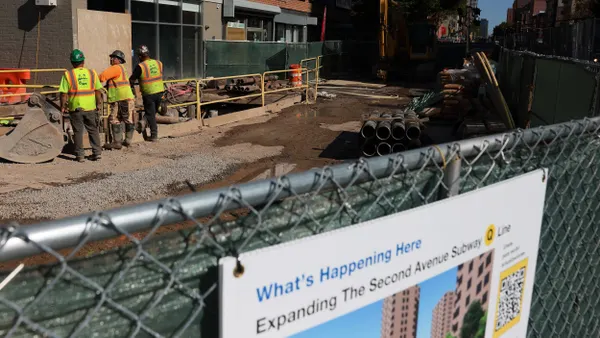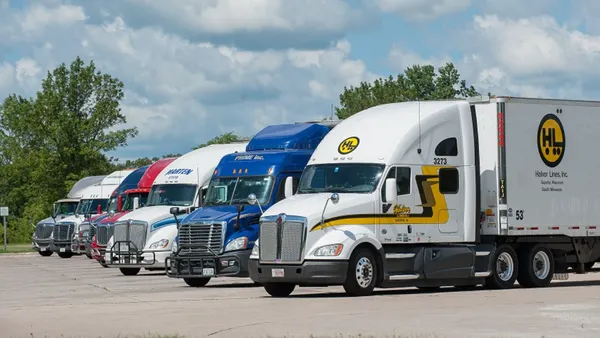Dive Brief:
- The American Trucking Associations is calling on Congress for more regulation regarding CDLs, saying truck-involved crashes justify tougher standards.
- The organization also said commercial drivers should also have to hold a regular driving license for a year beforehand and supported increased fines for cabotage violations involving foreign companies conducting illegal domestic hauls.
- CEO and President Chris Spear said in a letter to legislators that “additional targeted reforms are urgently needed to round out USDOT’s efforts and ensure all commercial drivers are properly qualified, adequately trained, and legally operating in the country.”
Dive Insight:
Recent University of Tennessee, Knoxville, research suggests a correlation between English language proficiency violations and worse safety records — but cautions against concluding that an ELP deficiency causes the problematic performance.
Based on the research, “FMCSA should devote more audit resources to target carriers that are found with ELP violations. This will help to remove some of the most unsafe capacity from the US roads,” Michigan State University supply chain management professor Jason Miller said in a LinkedIn post about the study.
Earlier this year under the Trump administration, federal transportation regulators set a policy of ELP violations prompting an out-of-service violation; announced a pause on issuing certain visas for commercial truck driver applicants; and began requiring states to increase immigrant identification standards when issuing and renewing CDLs.
The additional ID checks on so called non-domiciled CDLs could remove approximately 200,000 CDL holders or 5% of interstate commercial drivers from the industry over the next two years during renewals, the Department of Transportation has projected.
Ken Adamo, chief of analytics at DAT Freight & Analytics, said Monday that the non-domiciled CDL policy could be significant, especially if insurance companies start writing policies based on the federal regulatory changes.
But the additional regulations, Spear said, would “close critical gaps in our driver qualification system, strengthen enforcement of existing standards, and prevent unsafe operators from entering or remaining in the trucking industry.”













